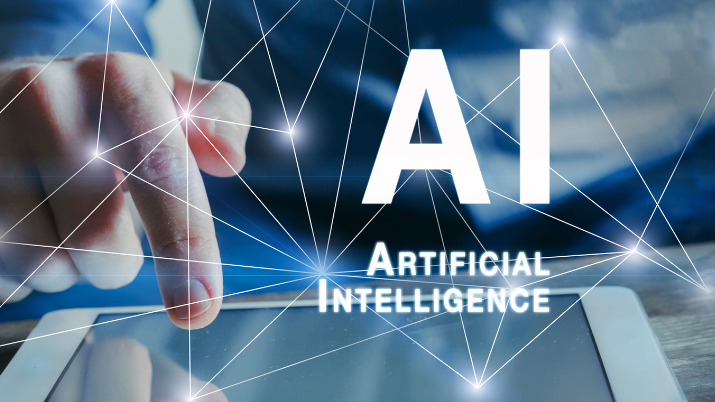Artificial intelligence (AI) refers to the ability of computers and machines to perform tasks that typically require human-like intelligence, such as learning, problem-solving, and decision-making. AI systems use algorithms and data to analyze and understand patterns in order to make informed decisions or predictions. There are several types of AI, including:
- Rule-based AI: This type of AI follows a set of predetermined rules to perform a task.
- Machine learning: This type of AI uses algorithms and statistical models to learn from data and improve its performance over time.
- Deep learning: This is a type of machine learning that uses artificial neural networks to learn and make decisions.
AI has the potential to transform many industries and has already been applied in a variety of fields, including healthcare, finance, and transportation. However, there are also ethical and societal concerns surrounding the use of AI, including the potential for job displacement and the need for responsible and transparent development and use of AI systems.
Why Artificial intelligence (AI)
Artificial intelligence (AI) is used for a variety of purposes, including:
- Automating tasks: AI can be used to automate tasks that would otherwise be performed by humans, freeing up time and resources for other activities.
- Improving efficiency: AI can analyze data and make decisions faster than humans, which can help improve efficiency and reduce errors.
- Enhancing decision-making: AI can analyze large amounts of data and provide insights and recommendations to assist with decision-making.
- Improving customer experiences: AI can be used to provide personalized recommendations or assistance to customers, enhancing their experience and increasing customer satisfaction.
- Facilitating research and development: AI can be used to analyze and interpret data, helping researchers and developers identify trends and patterns that may not be immediately apparent.
Overall, AI has the potential to improve efficiency, accuracy, and decision-making in a variety of fields and industries.
Is Artificial intelligence (AI) Change world
Artificial intelligence (AI) has the potential to significantly impact and transform various aspects of our lives and society. Some ways in which AI could potentially change the world include:
- Changing the nature of work: AI has the potential to automate tasks and processes, which could lead to job displacement in some sectors. On the other hand, AI could also create new job opportunities in fields related to AI development and implementation.
- Improving healthcare: AI could be used to analyze medical data and assist with diagnosis and treatment recommendations, potentially improving healthcare outcomes.
- Enhancing transportation: AI could be used to improve transportation efficiency and safety, such as through the development of self-driving cars.
- Improving environmental sustainability: AI could be used to optimize resource use and reduce waste, leading to more sustainable practices.
- Enhancing education: AI could be used to personalize learning and provide individualized education experiences.
Overall, AI has the potential to bring about significant changes in various sectors and industries, and it will be important for society to adapt and address any potential challenges that may arise as a result.
AI Advantages and Disadvantages
There are several advantages to using artificial intelligence (AI), including:
- Improved efficiency: AI can analyze and process data faster than humans, helping to improve efficiency and productivity.
- Enhanced decision-making: AI can analyze large amounts of data and provide insights and recommendations to assist with decision-making.
- Improved accuracy: AI can reduce the risk of human error by performing tasks with a high level of accuracy.
- Personalization: AI can be used to provide personalized recommendations or assistance to customers, enhancing their experience and increasing customer satisfaction.
- Facilitation of research and development: AI can be used to analyze and interpret data, helping researchers and developers identify trends and patterns that may not be immediately apparent.
However, there are also some disadvantages to using AI, including:
- Job displacement: AI has the potential to automate tasks and processes, which could lead to job displacement in some sectors.
- Ethical concerns: There are ethical concerns surrounding the use of AI, such as the potential for bias in AI systems and the need for responsible and transparent development and use of AI.
- Security risks: AI systems may be vulnerable to cyber attacks, which could lead to security breaches and the loss of sensitive data.
- Dependence on technology: Reliance on AI could potentially lead to a lack of critical thinking and problem-solving skills in individuals.
Overall, it is important to carefully consider the advantages and disadvantages of using AI and to address any potential challenges that may arise as a result of its use.
How is AI being used in various industries?
AI is being used in a variety of industries, including healthcare, finance, transportation, and education. In healthcare, for example, AI can be used to analyze medical data and assist with diagnosis and treatment recommendations. In finance, AI can be used to analyze market trends and make investment recommendations. In transportation, AI can be used to improve the efficiency and safety of transportation systems, such as through the development of self-driving cars. In education, AI can be used to personalize learning and provide individualized education experiences.
Visit our blog: Technoiva









































